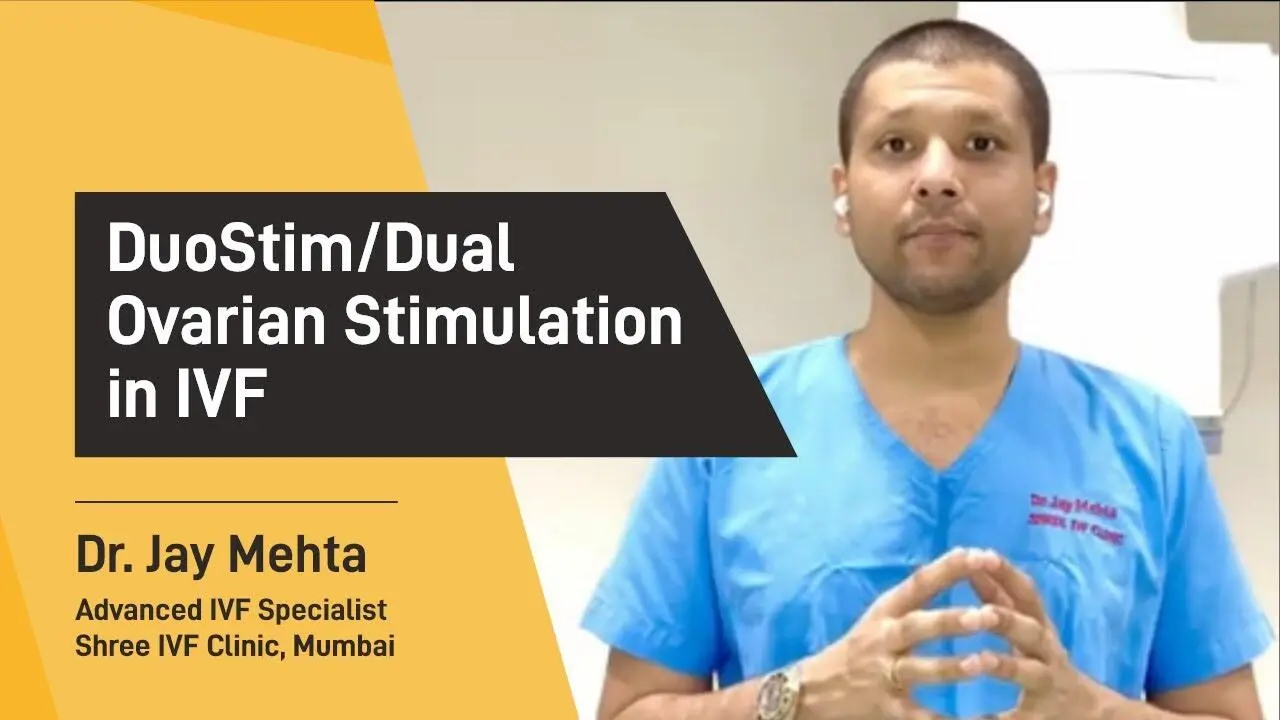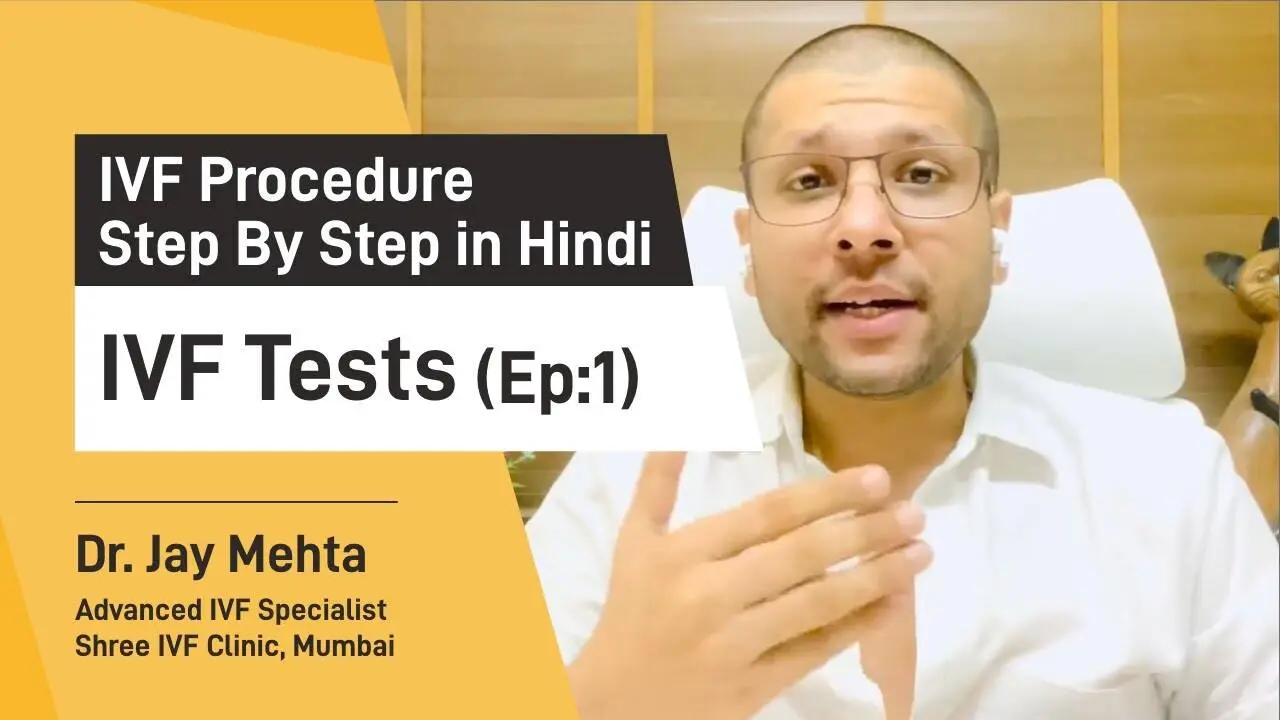Intracytoplasmic Sperm Injection (ICSI)

What is ICSI?
Intracytoplasmic Sperm Injection, which is also commonly known as ICSI is one of the common and most successful treatments for male fertility. This process is also performed by couples who were unsuccessful to fertilize during IVF. Sometimes some men need their sperm to be surgically extracted first.
The process asks for the female partner to go through ovarian stimulation with the help of fertility medications. ICSI treatment can help to have a baby even if with low male sperm count issues. This process includes injecting the live sperm directly into the human egg.
Everything You Need to Know About ICSI
Who may | Why is | Procedure | Treatment Performed | Risks | Pros and Cons | Success Rate
Who may require ICSI?
About 75% of all the in vitro fertilization cases are now ICSI. In the case of male factor infertility followed by abnormal semen analysis, doctors recommend going for ICSI. Your doctor may also recommend you for ICSI treatment if you are having some issues like:
• Low sperm count.
• You’ve had IVF earlier but very few or none of the eggs fertilized.
• Your sperm don’t move normally or they are abnormally shaped.
• You are using frozen sperm for your treatment and the quality is low because of its storage and was under threat.
• You had a vasectomy or a blockage that prevents the sperm from reaching discharge.
Why is ICSI – IVF did?
ICSI is performed in a laboratory and is a part of IVF. ICSI – IVF is one of the specialized forms of In vitro fertilization (IVF) that is performed in the case of repeated failed fertilization attempts with the help of conventional IVF. It is also performed after the freezing of egg or male infertility.
In the case of IVF, doctors place more sperm together into the egg expecting that any one of the sperms will enter the egg and begin the process of fertilization. But in the case of ICSI-IVF doctors take a single sperm and puts it directly into the embryo.
ICSI-IVF is recommended by many doctors to infertile couples. It has enabled couples to get pregnant when without this process it was impossible to conceive with their egg and sperm.
ICSI-IVF is not only performed for the above-mentioned issues. In the case of Preimplantation Genetic Diagnosis commonly known as PGD doctors suggest going for ICSI – IVF. In the case of a regular fertilization process, many sperm cells that have not fertilized the egg hang around the embryo. It causes interference with the exact PGD result. Hence doctors suggest ICSI – IVF.
How ICSI Works?
ICSI is normally a part of the IVF process. The process includes a single sperm being injected at the center of the egg by a doctor. After the sperm has been injected into the egg, doctors wait for a few days to see the result. If the egg starts to fertilize and the embryo matures the doctor transfers it into your uterine cavity.
Steps involved in ICSI-IVF procedure:-
- Ovarian Simulation
A scan is performed to confirm that the ovaries are quiet and there is a thin lining of the womb. Women with the down-regulation regime will tend to have nasal sniff or down-regulation injections along with injections of stimulations until further instructed.
There are self-administered injections that come with an adjustable pen, vials, or ampoules that are mixed with water. Doctors will show you the technique and they will also provide a DVD or handwritten instructions for you to follow at home.
You will also be provided with a detailed timetable which consists of the days of injections and scans. The duration of this treatment is 10-12 days. There is also a need for regular interval blood tests and scans. Scans will help to monitor the response of the ovaries. On a scan, follicles can also be seen which may contain eggs. Therefore, doctors advise taking injections at the same time of the day.
- Egg Collection
The next step of the treatment is egg collection. It is always performed under strong painkillers or sedation or sometimes general anesthesia is also performed.
When a scan confirms the right stage of maturity of the follicles an injection is administered. Just before 35 to 36 hours of egg collection, the injection is administered. The timing is very important in this phase. The injection is administered in the evening because after that day there will be no medication for you. You will be advised to fast that night.
You are advised to refrain from sex for 3-5 days. It helps to know that the quality of sperm on that day is optimal. Your partner will be asked to provide a semen sample when it is time for egg collection. The process is always recommended to happen at the medical center and not at home.
Once you are under anesthesia or sedation doctors will need 20-30 minutes to retrieve the eggs from the ovaries. Doctors locate each follicle in the ovaries. Each follicle is punctured using an ultrasound scan by using a fine needle. This needle helps to draw fluid from each sac into a warm sterile tube.
The tube is further examined under a microscope. Every follicle does not produce mature eggs. There are also some empathy follicles containing eggs that even stopped growing and further disappeared. Other follicles too contain eggs but sometimes they are too young for fertilization.
- Medication
You will be under medication, especially progesterone support. It is a kind of hormone that helps in the good development of the womb. The medication is continued till the day of the pregnancy test and also beyond if the result of the test is positive. Sometimes doctors also add blood thinning injections, estrogen tablets, and even steroids if needed for your benefit.
- Laboratory
In the process of IVF, a large number of good-quality sperm are added to each egg in a small dish. Furthermore, they are placed in incubators which helps the sperms and eggs to be in body temperature. However, in the case of ICSI, only a single sperm is selected and placed into each egg. And then these eggs and sperm are placed in the incubator.
The morning after the egg is being collected, doctors examine the dish in which the sperm are placed under a microscope. Fertilization is studied later on. It is seen that on an average basis, 60% of the eggs injected by the process of IVF start fertilizing and 70% of the eggs injected via ICSI fertilize normally.
For the next 1 – 4 days, the embryos that split are replaced in the incubator. The embryos are checked daily to confirm the quality, and quantity of the embryo. It also indicates the perfect time to transfer.
- Embryo Transfer
After the eggs are collected, from day 2 to day 5 the embryos can be transferred. Sometimes in rare instances, the embryos can also be transferred on day 6. If in any case, the embryo reaches the blastocyst stage, which is the 5th day after the egg collection the chances of pregnancy increase.
The embryos can also be transferred on day 3 if they become 6 to 8 cells or if the quality matches with what is needed and can be also cultured to embryos that reached the blastocysts stage.
Two of the strongest embryos must be chosen for replacement but doctors find it more appropriate to transfer one or three embryos.
How is ICSI treatment performed?
A tiny needle is used to place a single sperm into the center of the egg. After the sperm is injected embryologists wait for the result. The process is carried under a powerful microscope. Once fertilization begins, the egg continues to divide forming an embryo. Once the embryo is 3 days old and consists of 8 cells, it is ready to be transferred into the woman’s womb. Sometimes the transfer is also done on day 5 which is known as Blastocyst transfer.
What does ICSI treatment cost?
People from all over the world come to India for ICSI – IVF treatment. In India, people find the treatment is half of the cost as compared to other countries. The treatment in India is also performed by a skilled medical team.
The cost of ICSI is not always included in the price of IVF. In India, you will find the cost of ICSI ranging from Rs.2,40,000 to Rs.2,50,000 per cycle. This includes only traditional techniques. Depending upon the case the amount also differs. The advanced treatments can also go up to Rs. 4,50,000 for one sitting.
The risk associated with ICSI – IVF
You will find data suggesting IVF or ICSI-IVF is safe. But the risk is both for the mother and the newborn. Some of the risks are:-
• Multiple Gestation
• Hormone abnormalities in the offspring
• Preterm delivery
• Delayed development in children
• Heart defects in babies
• Hypospadias
Pros and Cons of ICSI
Pros:
Doctors’ advice for ICSI or couples who opt for ICSI has fertility issues or ejaculation issues or issues related to male infertility. Any of the partners experiencing these issues can be benefited from ICSI treatment. It enables the male partner to get an opportunity to become the father of a child using his own sperm.
Even if the male partner undergoes vasectomy, ICSI is a good option for them. In the process of ICSI couples can also opt for donor sperms.
Cons:
There lie some risks with ICSI also. Once the sperm is obtained from a male partner, he is not subjected to any risk. The risks lie with the techniques being used for sperm recovery. Not all eggs fertilize into healthy embryos.
It is possible sometimes for them to get destroyed. During this process, mothers have a chance of carrying twins or triplets which can lead to certain complications. The risk of birth defects is also seen in the process of ICSI.
The success rate of ICSI
The process of ICSI fertilizes 50% to 80% of eggs. ICSI is an option added with IVF for severe male infertility or for couples who faced multiple pregnancy issues.
Fertilization is never guaranteed even after the sperm is injected into the egg. But ICSI can give you some hope. ICSI is the most used method of fertilization accounting for 70% to 80% of the success rate. Reports favor the use of ICSI as it increases the rate of childbirth.

Dr. Jay Mehta
MBBS, DNB – Obstetrics & Gynecology
IVF & Endometriosis Specialist, Laparoscopic Surgeon (Obs & Gyn)
Dr. Jay Mehta is a renowned IVF specialist and fertility-preserving surgeon in Mumbai, India. He is the Director of Shree IVF and Endometriosis Clinic, as well as the Director of Uterine Transplant in Global Hospitals, Mumbai. He is a leading laparoscopic gynecologist in India for endometriosis and adenomyosis..
He is a well-known Fertility and IVF Specialist and also among few doctors in the country who specializes in Embryology and Andrology. He operates India’s major cities including Mumbai, Pune, Chennai, Hyderabad, Bangalore, Ahmedabad, Agra, Delhi etc.
To book an appointment, call: 1800-268-4000 or fill out our contact form

Google Reviews

Ankita Katyal

I am incredibly grateful for Dr. Jay's exceptional support throughout my IVF journey. Dr Jay has been like God sent an Angel for us. From our very first meeting, it was clear that Dr. Jay was not only a highly skilled and knowledgeable professional but also someone who genuinely cared about my well-being.
From my first meeting, he was very clear transparent, and straightforward about my protocol, treatment line, and success rate. After two difficult IVF cycles that failed, I was beginning to lose hope.
However, Dr. Jay’s unwavering encouragement and meticulous care helped me stay positive and focused. Thanks to God and of course to his expertise and dedication, WE FINALLY ACHIEVED SUCCESS!!!!!

Krish A

Dr Jay Mehta is the best Fertility doctor. I am glad to have IVF done with Jay sir.
This unit is very ethical and very honest at work. In my previous IVF cycle, I did not have embryos in Chennai. I was here and Dr and team had told me not to worry. I was given end to end transparency about my embryos and I was lucky to become pregnant in the 1st cycle here, though I was told that the success rate will be about 25 to 30%.
IVF space is competitive, but these guys don't do any Ads on Google. And still if you search, Dr Jay is ranked no.1. I was extremely impressed with that and I am happy that I took a call to travel to Mumbai from Chennai.
I am thankful to the entire team for handling my case nicely. And May God shower the team with his choicest blessings.

Forum Shah

I visited 3 years back for my IVF treatment at that time and also got good treatment with Dr. Jay Mehta … the best part is he would tell me straight away whatever the cause and outcome would be.
This time also I came for Endometriosis treatment n within 3-4 days decided to get operated as there was no looking back as I trust him for his treatment. Thank you Dr once again for the right advice 😊

Deepak Jagadale

Dr Jay Mehta and team are simply excellent people and brilliant outcomes in Fertility services. Very very honest and humble doctor.
Thank you for the valuable guidance during the IVF process and the excellent and no hidden costs during IVF procedure. For middle class people it's a big relief.

Avinash Jain

Dr. Jay Mehta is a result-oriented specialist in his field and the best we could ask for, in a Metro city. His line of treatment for IVF is different from other IVF clinics.
The support provided by doctors and staff as well as all other attending doctors is phenomenal. We are very satisfied and will also highly recommend to others the IVF treatment at Shree IVF Clinic Mumbai.

Vijaya Garg

Dr. Jay Mehta is one of the best gynaecologist doctor of our India. I trust him faithfully and would like to recommend each and every one that don't waste time moving here and there to another doctorand .
I m sharing my experience I wasted my time mand oney by moving from one doctor to other and my problem was unsolved I'm thankful to Dr. Priyanka Shukla mam of trident hospital for suggesting Dr. Jay Mehta sir for my treatment . Now I'm pain-free...Thank you Dr. Jay Mehta sir... you are really my Boley baba shiv shsmbu. I m thankful to all the staff members of Shree IVF hospital
Blogs

Does ICSI improve IVF success?
Modern medical practices include strategies for patients who cannot get pregnant on their own. The IVF is the most popular method for this, and there is more to it. ICSI is one of its two main procedures and not an alternate plan to the IVF method.

How is ICSI different from IVF?
ICSI stands for Intra-Cytoplasmic Sperm Injection. In this treatment plan, the embryologist selects one sperm and uses a fine needle to enter it into the egg of the female body. When this sperm properly goes into the cytoplasm region of the egg, the fertilization is successful. After the embryo fertilizes, the entire egg is moved to the womb.
Videos

DuoStim/ Dual Ovarian Stimulation in IVF
DuoStim is an option for women with low AMH, providing stimulation twice in one cycle from days 2-4 of their period to enhancing the chance for egg retrieval

Everything You Need to Know About IVF Tests
IVF tests performed before undergoing IVF include sonography, AMH, thyroid tests, and semen analysis to ensure a successful treatment process

